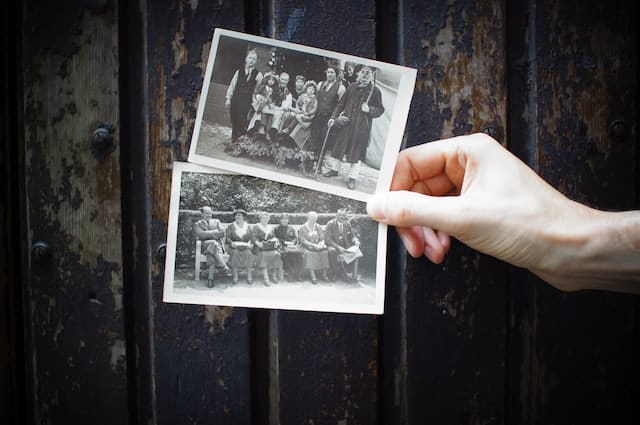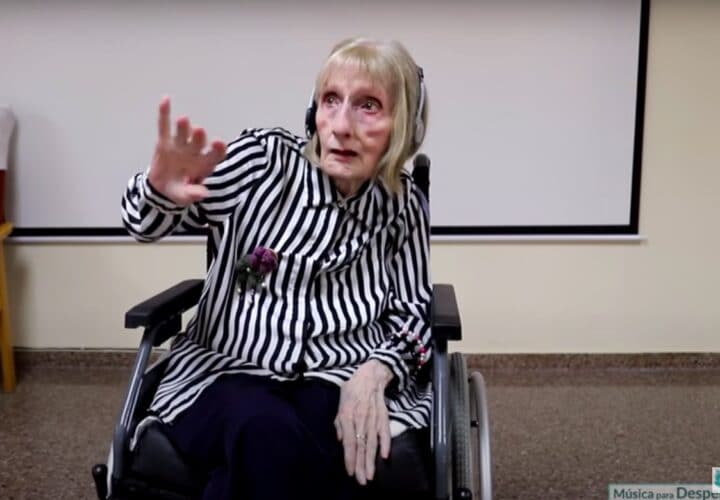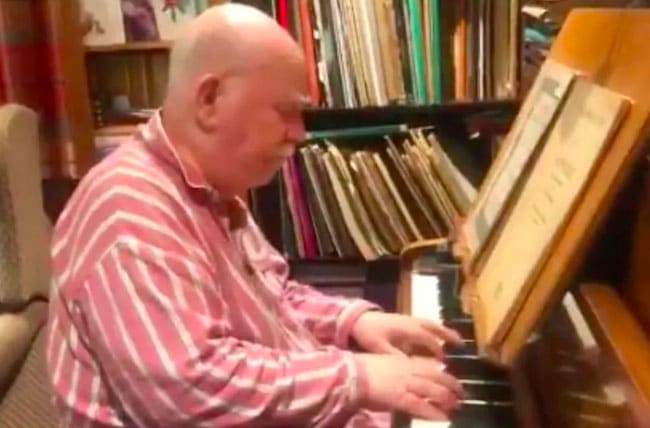To engage and include relatives living with early Alzheimer's or dementia in family time, get them talking about their favorite memories from the past.
Memory loss does worsen as dementia progresses. Some memories never form — or they disappear as quickly as they arrived. Meanwhile others may stay safe for much longer. Recalling memories from this latter category — a person’s oldest, most frequently recalled, or most cherished memories — can bring people great joy. Being Patient explores the scientific reasons for why the brain handles different types of memories differently, and why reminiscing can be so powerful.
The science of Alzheimer’s and recalling the past
Different regions of the brain are responsible for different types of memory storage. That means neurodegenerative conditions like Alzheimer’s disease affect different regions of the brain in different ways.
In the early stages of symptomatic Alzheimer’s disease, the brain’s hippocampus region is compromised. This is the region responsible for our “working memory” — the cognitive system that holds information temporarily, like the day’s schedule, or someone’s name.
But research tells us that different brain structures are involved in forming and storing long-term memories. In fact, these different types of memory — short-term and long-term, old and new — are processed so differently that researchers are finding ways to distinguish between them just by monitoring brain activity.
According to Larry Squire, professor of psychiatry at the University of California San Diego, these differing methods of memory storage mean that people living with Alzheimer’s may have trouble forming and storing short-term memories, but at the same time, they can recall certain older memories with ease. A 2009 study co-authored by Squire in the Journal of Neuroscience took brain images of study participants as they answered questions about events that happened in the last 30 years and found that the hippocampus lit up when participants recalled recent events. But the older the memory was, the less activity occurred in the hippocampus. Instead, recalling these older memories spurred brain activity in the frontal, temporal, and parietal cortices, located on the brain’s exterior.
These latter regions are less affected by Alzheimer’s, keeping long-term memories safe.
The link between memory and emotion
There is also a link between memory and emotion. Sensory experiences like music or aroma have been said to “unlock memory” by way of tapping into the emotional link triggering feelings — often good feelings — associated with past events or periods in one’s life. In other words, people with neurodegenerative diseases may still be able to channel older memories not because they can recall the specifics of a past event, but because they can recall the way they felt at the time. This capacity persists until the late stages Alzheimer’s disease.
Because of this emotion-memory link, people living with Alzheimer’s or dementia may be very well able to recall things they did or practiced repeatedly, such as playing music (see the father with dementia who breaks through a cognitive wall when he sits down at the piano) who or performing dance (see the prima ballerina with Alzheimer’s dancing “Swan Lake”); or to recall major life events associated with a strong emotional response, like births, weddings, or landmark dates and historical events a person may have experienced in their lifetime — 9/11, John F. Kennedy’s assassination, the moon landing.
The power of old memories
For these reasons, people who have loved ones living with Alzheimer’s or dementia will find that listening to beloved old music, flipping through old photo albums or otherwise reminiscing about good times in the past taps into the brain’s power to store these old memories. Dementia experts say doing so can lead to warm moments.
Music & Memory Program Director Justin Russo told Being Patient: “Because music connects people with the positive memories they had when they first listened to those songs, it has a really soothing effect. It also stimulates movement. If people are a little bit restless, they start having a way of moving to the music, which is very, very calming for them,” he said.
Dr. Eric B. Larson, a senior investigator at Kaiser Permanente Washington Health Research Institute, wrote for Being Patient about the therapeutic benefits of reminiscing through storytelling.
“As we age, memories of long past events become more important especially with each passing decade of late midlife and old age,” he explained. “Studies show that when centenarians are asked to reminisce on past events — especially to cite their enjoyable or most meaningful events — the trove of events they recall involving their first 20 years of life vastly exceeds the previous 20 years. It’s as if our minds lay down vast amounts of earlier-in-life events that get embedded deeper and stronger into our brains’ circuitry.”
But, Larson said, it is clear to anyone who speaks frequently with older adults that many take great pleasure in the telling (and retelling) of experiences and relationships of their past lives: “Since the time of Aristotle’s Rhetoric, wise people have realized that reminiscing is not harmful but helpful and that as we age people think a lot less about their future and more about their past. This is not unhealthy but simply a feature of aging. People shouldn’t be denied this pleasure,” he wrote.
In spending time with family or friends this holiday season, whether in person or digitally, do ask your loved ones with Alzheimer’s or dementia questions that call back on the distant past, and see what they may recall. But keep in mind, there are some don’ts, too: Dementia care experts advise not to interrupt or correct a loved one if they don’t remember the exact version of past events or repeat themselves.




I find your web site and the content very informative and helpful. Thank you.